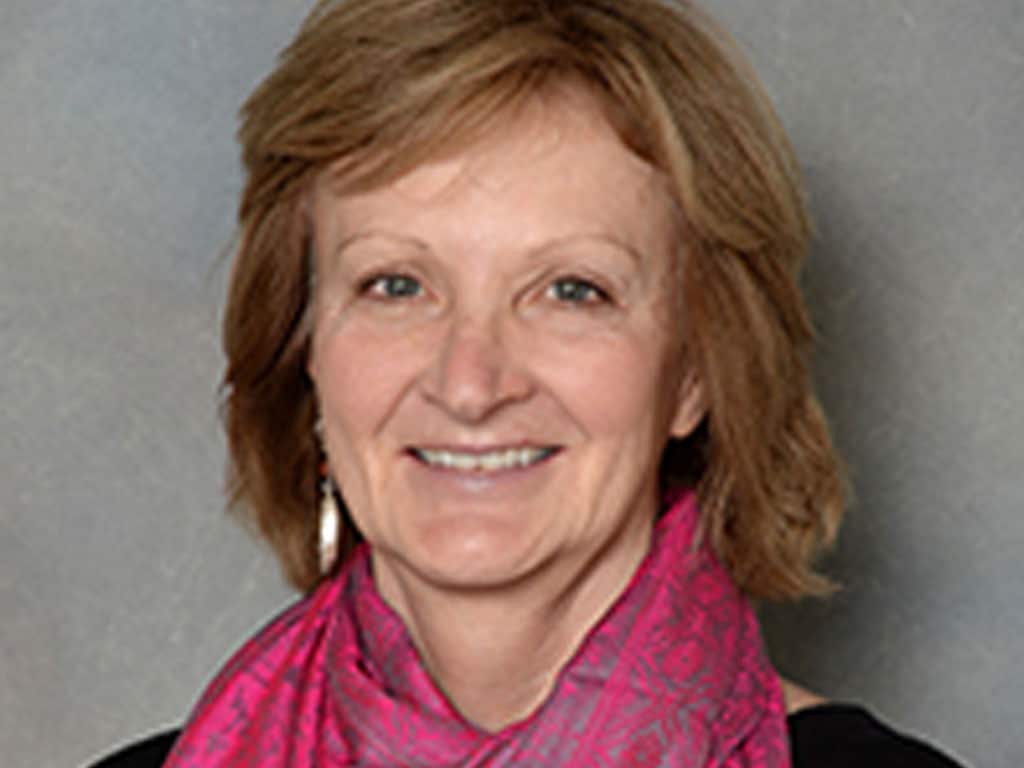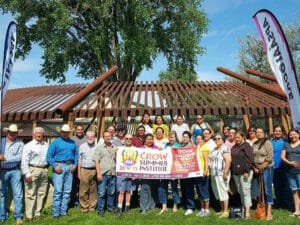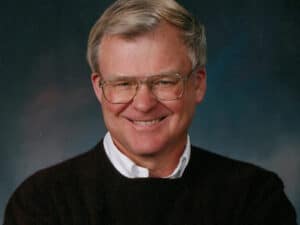Golden Anniversary Letter, April
As Humanities Montana celebrates our 50th anniversary, we are honored to hear from previous board members and friends from across the state. This month, Jamie Doggett shares her reflections on what the humanities have meant to her and what they mean in a time of war. Jamie is a cattle rancher who grew up around Ringling and Harlowton and says the humanities changed her life. She served on the Montana Committee for the Humanities board from 1989–2001 as an appointee by both Governors Stan Stephens and Marc Racicot. For four of those years, she took a leadership role as chair of the board. In 1996, Jamie was elected to the board of directors for the Federation of State Humanities Councils, where she volunteered her time for another eight years, including four years as chair. After that, she was appointed by President Bush to the National Council for the Humanities, where she served from 2006–2010. Jamie rejoined the Humanities Montana board in 2020.
Greetings to my fellow humanities friends,
A few weeks ago, Randi asked if I would write the Humanities Montana Golden Anniversary letter for this month’s newsletter. I, of course, put it off as long as possible, not sure what I wanted to say.
I have told many people that the humanities changed my life; that’s because I’ve met such wonderful, excited, interesting, engaged, intelligent folks who love supporting the humanities. Over the years of my involvement with Montana Committee for the Humanities and Humanities Montana, I’ve enjoyed discussions of a grant’s merits, programs that tell how the humanities can make us think about something outside our day-to-day conversations, and the excitement around sharing and teaching all of the knowledge included in what we call the humanities.
I live 25 miles from the nearest small town, White Sulphur Springs. I work daily on our cattle ranch, and let me tell you, cows are very poor humanists, poor listeners, and very poor readers of interesting literature. However, the humanities gave me an open door and window into discussions of the needs of communities and vibrant presentations provided by rock-solid scholars. How grateful I am that I was a governor’s appointee to what was then the Montana Committee for the Humanities. Thank you, Marc Racicot!
But today, I am feeling distraught. The war in the Ukraine, the atrocities committed against Ukraine and its people, and the destruction of historic buildings is beyond understanding. I look at the news of apartments being destroyed, putting people out on the streets and hospitals bombed, along with libraries and historic cultural centers that have existed for generations—now gone. What a terrible time we live in when something this dark is going on in our world.
As a humanist, I look at the horrible destruction of those once-beautiful libraries, theaters, and cultural centers. How unbearably sad and devastating for the Ukrainian people—and for us as well. I think of all the treasures from long, long ago that have been destroyed, reduced to rubble and dust. Never to be restored or saved.
And then, I remember the humanities! Thankfully, there are hundreds of scholars and people who care about history, literature, and their culture—the humanities. They might not be able to rebuild every museum, college, library, theater, or public center, but the people who care—the scholars, readers, dreamers, lovers of books, musicians, dancers, and historians—will help their people find their way.
The humanities are not a building, a book, a city; the humanities are what make life worth talking about, learning about, and living. Now, the humanities can change their lives. The humanities will survive!
Sincerely,
Jamie Doggett




